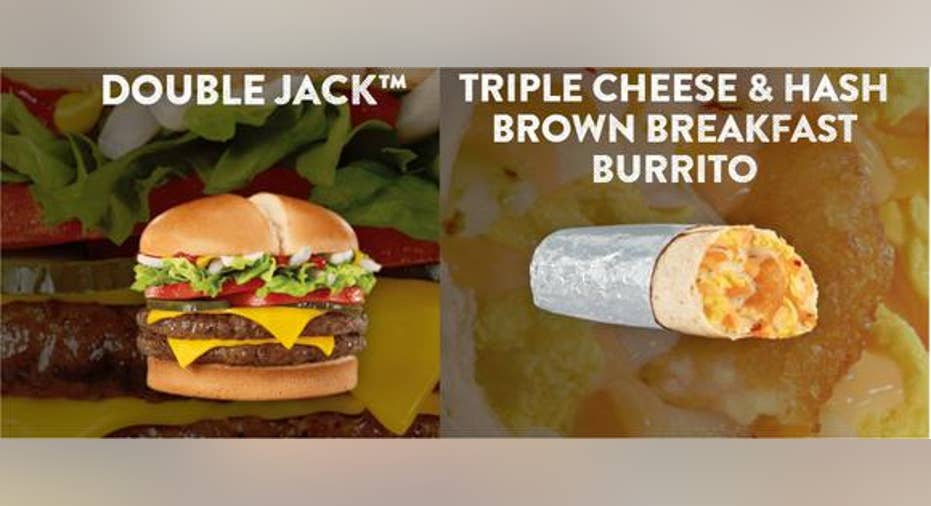2 Incredibly Cheap Restaurant Stocks

The restaurant sector can be a tough one for investors to figure out. Stocks for hot restaurants can rally continuously and defy fundamental gravity with overvalued multiples. Meanwhile, stocks for troubled restaurants can crash and fail to recover despite being supported by concrete earnings.
Therefore, it can be tough to find "cheap" value stocks in this sector that have a viable chance of rebounding. For this article, I'll define "cheap" as restaurant stocks that trade at a discount to the industry and are supported by either buybacks or dividends. Let's take a look at two stocks that fit that bill:Jack in the Box and Brinker International .
Image source: Jack in the Box.
How did Jack in the Box become "cheap"?Shares of Jack in the Box have fallen more than 30% over the past 12 months because of slowing comparable sales growth. Last quarter, comps at its namesake chain and Mexican chain Qdoba respectively rose just 1.4% and 1.8% annually. By comparison, comps at Jack in the Box and Qdoba respectively improved 6.2% and 6.6% in the previous quarter. Overall sales rose just 0.5% to $470.8 million last quarter, missing estimates by nearly $5 million.
For fiscal 2016, Jack in the Box expects comps at its namesake stores to rise just 1% to 2%, and 2% to 3% at Qdoba. That slowdown indicates that McDonald's all-day breakfast strategy is likely hurting its namesake chain's all-day breakfast offerings, and that Chipotle's E. coli disaster didn't really boost Qdoba's sales. To offset slower comps growth, Jack in the Box plans to open 20 new namesake stores this year, the majority of which will be higher-margin franchised locations, along with 50 to 60 new Qdoba locations, roughly half of which will be franchised.
Jack in the Box's non-GAAP earnings remained flat year over year at $0.93 per share, missing estimates by $0.10. That miss was attributed to higher sales and marketing expenses, which weren't fully offset by improving restaurant operating margins and benefits from commodity deflation. Analysts now expect Jack in the Box to grow its annual earnings 13.5% over the next five years, which gives it a 5-year PEG ratio of 1.3, which is significantly lower than the industry average of 2.4. It also pays a forward annual dividend of 1.9%, but it hasn't hiked that payout this year.
How did Brinker International become "cheap"?Shares of Brinker International, the parent company of Chili's and Maggiano's Little Italy, have declined nearly 30% over the past 12 months because of slipping comps growth. Last quarter, comps respectively fell 2.8% annually at Chili's and 1.8% at Maggiano's. Brinker partially attributed the decline in Chili's comps to lower gas prices causing economic pressures in the energy-dependent states of Texas and Louisiana.
Image source: Chili's.
Brinker's total sales rose 6% to $788.6 million, missing estimates by over $10 million. That sales growth mainly came from its acquisition of over 100 Chili's restaurants from franchisee Pepper Dining last year. Brinker finished last year with 1,646 locations, 61% of which were company-owned and the rest of which were franchised. In fiscal 2016, Brinker plans to open 11 to 13 company-owned domestic Chili's locations and two company-owned Maggiano's locations. It also intends to add 33 to 40 franchised Chili's locations overseas.
Analysts expect the addition of those new restaurants to boost Brinker's sales 10% annually this year before declining to 2% growth in 2017. Comps growth will likely remain tough as Brinker's full-service restaurants continue to struggle against cheaper "bistro" players like Chipotle and Panera Bread.
On the bright side, Brinker's adjusted earnings per share rose 10% to $0.78 last quarter, beating estimates by $0.03 -- although much of that gain can be attributed to buybacks. Looking ahead, analysts expect Brinker's earnings to grow 13.5% annually over the next five years, which gives it an "undervalued" 5-year PEG ratio of just 0.95. Brinker also pays a forward annual dividend of 2.7%, which is higher than the S&P 500's average yield of 2.1%. It has also raised that payout for five consecutive years.
Should you buy "cheap" restaurant stocks?Jack in the Box and Brinker International both look cheap relative to their earnings growth potential, but investors often shun "cheap" restaurant stocks because they can get caught in multi-year downturns due to economic pressures and fickle customers seeking out new dining experiences.
Jack in the Box hasn't introduced any meaningful new ways to counter McDonald's all-day breakfast blitz, and Brinker's use of store openings to offset negative comps could easily backfire if the new locations fail to generate meaningful sales growth. Therefore, I wouldn't recommend buying either Jack in the Box or Brinker until those problems are resolved, but I'd advise investors to keep both "cheap" restaurant stocks on their long-term watchlists.
The article 2 Incredibly Cheap Restaurant Stocks originally appeared on Fool.com.
Leo Sun has no position in any stocks mentioned. The Motley Fool owns shares of and recommends Chipotle Mexican Grill and Panera Bread. Try any of our Foolish newsletter services free for 30 days. We Fools may not all hold the same opinions, but we all believe that considering a diverse range of insights makes us better investors. The Motley Fool has a disclosure policy.
Copyright 1995 - 2016 The Motley Fool, LLC. All rights reserved. The Motley Fool has a disclosure policy.



















